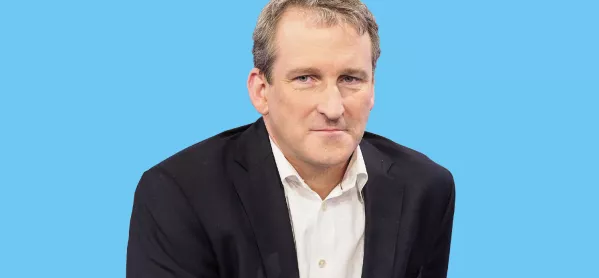Free mobile phone apps could be a vital part of improving disadvantaged children's education, according to Damian Hinds.
The education secretary revealed this morning that his department is launching a competition to identify which mobile phone apps are the best at helping with children’s early education at home.
“If our phones and apps can help us bank, shop, diet, exercise and figure out where we are, why not also help us with helping our children to develop their communication and reading?” he said.
The announcement was part of a speech on social mobility in which Mr Hinds pledged to by 2028 halve the number of children who start school without the speaking or reading skills they need.
More than a quarter of four- and five-year-olds (28 per cent) lack the early communication and literacy skills expected by the end of Reception year, according to new Department for Education statistics.
Mr Hinds, speaking to the Resolution Foundation thinktank, said that it was a "persistent scandal that children started school struggling to communicate and speak in full sentences".
He said that there were already apps with "helpful tips and imaginative ideas" for helping with children’s early development.
'Making sure the disadvantaged don't miss out'
“But not all of these are widely known about and parents won’t know, of course, which are the best. That’s why the department will be launching a competition to identify high-quality apps with the aim of making these free and easily accessible, making sure that disadvantaged families don’t miss out,” Mr Hinds added.
As well as the apps competition, Mr Hinds today announced that schools may bid for a share of £30 million being put towards providing high-quality nursery places.
"We’ve previously committed £50 million to expand school-based nursery provision and as part of this today I’m announcing we’re launching a capital bidding round of £30 million to invite leading schools to come forward with projects to create new high-quality nursery places demonstrating innovative approaches to closing the gap for disadvantaged children," Mr Hinds said.
He also said that money would be spent on training early years professionals.
"To ensure provision is high-quality, we must make sure we invest in people as well as in buildings and that is why we are investing £20 million to train and develop early years professionals focusing on the most disadvantaged areas of the country so we have the expertise to support very young children in their early language and literacy skills,” the education secretary said.
It was early years minister Nadhim Zahawi who first revealed in a letter to the Commons Education Select Committee earlier this month that the government was to spend £20 million on boosting early years teaching in disadvantaged areas – rather than keeping to the original pledge in last year's Early Years Workforce Strategy to carry out a study into how to increase the number of graduates working in early years in disadvantaged areas.
The U-turn prompted anger from prominent academics and early years organisations, who said it would “deny thousands of disadvantaged children vital support”.





